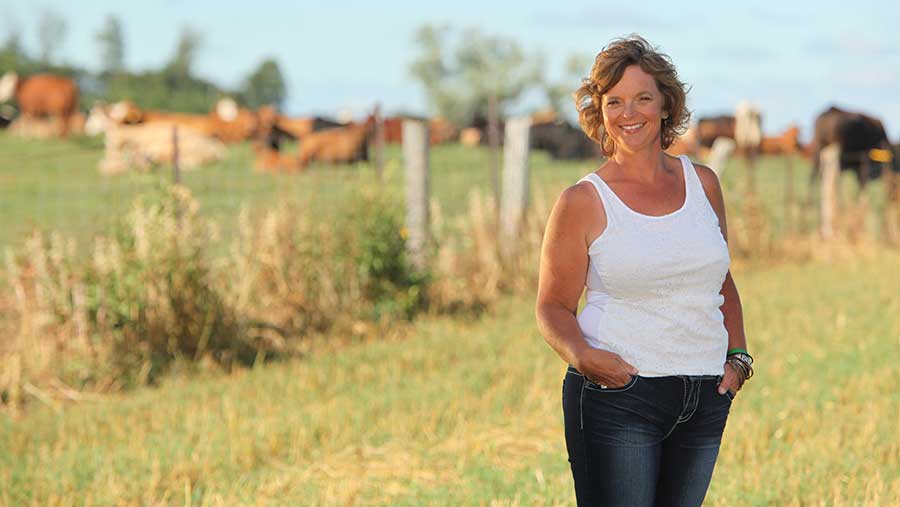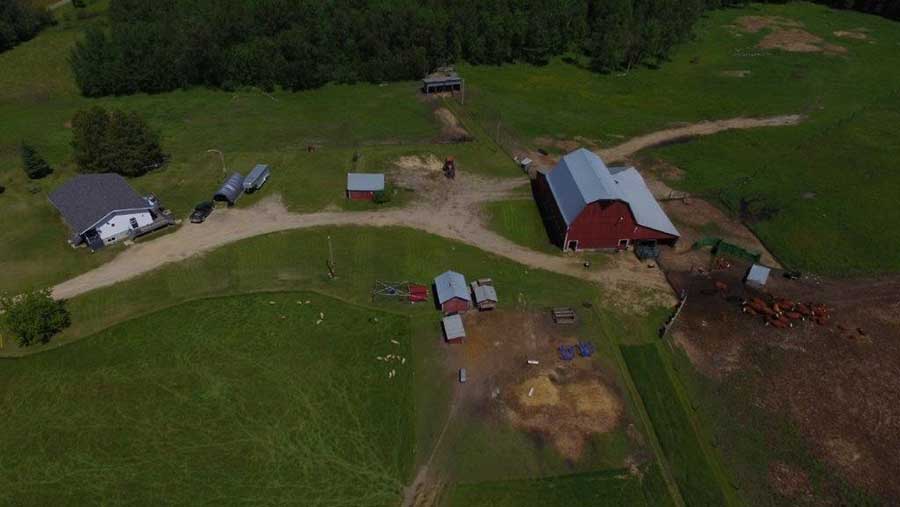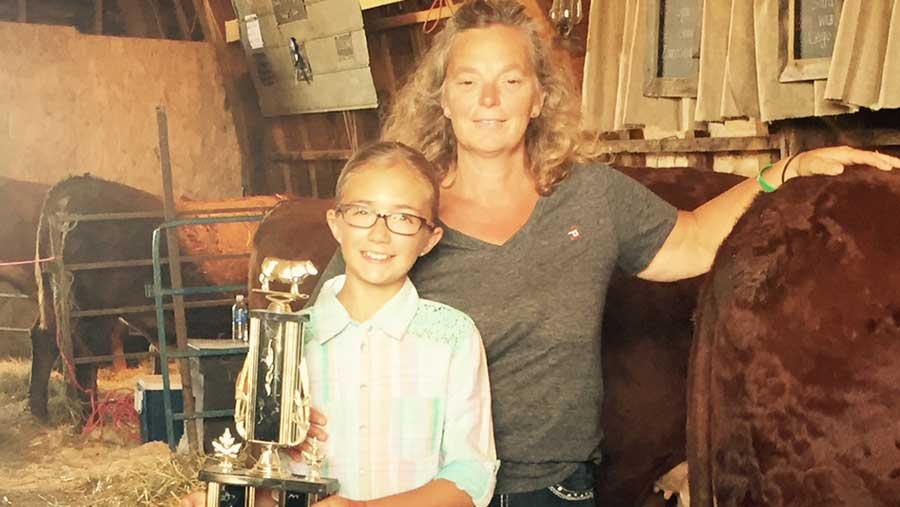Farming in Canada: ‘The great, quiet country’
The View From Here is the series in which farming women give an insight into rural life around the world.
We catch up with people around the globe to get a sense of the joys and challenges of life in the countryside.
From New Zealand and France to the US and Uganda, we get a flavour of the joys and challenges.
Here, Kim Jo Bliss gives us a glimpse of her life in Canada.

Kim Jo Bliss © Photo provided by Farm & Food Care Ontario
See also: New Zealand farming – living the dream, despite the weather
What sort of farm do you live on?
It’s beef and sheep – near Emo in Ontario. I calve the cows in February and lamb in April.
I also finish a few beef every year. I have an amazing dog, pet rabbits, a horse and, for the first time last year, ducks.
I loved the ducks and planned to get them again this year, but I didn’t like taking them to the abattoir so haven’t purchased any yet.
How involved are you with the farm?
I am the owner/operator so pretty involved. I make all the decisions and pay all the bills.
My dad and mum – though not farmers – certainly help me out if they can.
My dad likes driving a tractor so that helps for moving snow or hauling manure but, as for calving, it is me.
My dad’s health isn’t the greatest so I have to be prepared to do things on my own. Plus, he is retired so he shouldn’t need to feel like he “has” to work.
What’s the farming/countryside typically like in your area?
It’s beautiful. We really take it for granted. It is only when you have guests that point out all the beauty we stop and realise all we have.
We have trees, rocks, water – but also open prairie-like fields.
How poor or prosperous are farming families in your country?
For many years, most of the beef farm families had off-farm incomes at a local paper mill so things were pretty prosperous.
Many such jobs subsidised the farm and, though this is still somewhat the case, the paper mill has closed.
We are seeing young farmers working hard so they don’t have to work off-farm and so they can turn the operation into a healthy farm business.

Kim Jo Bliss operates a beef and sheep farm near Emo in Ontario
What’s the best thing about living on a farm?
There are so many. I love working for myself, I love taking care of the animals and seeing new life every year as I calve and lamb.
I love sitting on a tractor cutting fresh hay, I love the country, I love hearing how well my animals finish, and now I love sharing all of this and more with my two nieces.
Seeing how much they love it makes it all worthwhile.
What’s the worst thing about living on a farm?
The things you can’t fix – like a dead animal or the weather.
What’s the single biggest challenge farmers face where you are?
Besides not getting enough money for our products, and the cost of everything going up and up, it’s the weather.
We tend to have extremes – and though it is decently dry this year – we get some crazy rains.

Kim Jo Bliss with her niece Maddie Bliss
What makes you laugh?
Listening to my nieces tell me stories, they are nine and 11.
Also, my friends, when we make the time to sit around a visit – is a night of laughs. I also work for the University of Guelph doing crop research in Emo and I work with summer students every summer – life is full of laughs.
What makes you angry?
Selfish people and rubbish weather are my least favourite things.
Is there equality between the sexes in your country?
I think yes. I spend most of my time working with men and never feel like they think I am doing something I am not good at. I feel very respected.
Is farming well supported by your government?
In some ways, I think we have support (for example, there are some great programmes available), but in other ways not so.
They continually talk about “local food” and people having access to it, but the cost of power and taxes at our local abattoir are incredibly high and, without an abattoir, we wouldn’t have local food.
It would also be great if beef farmers had access to a “cost of production” programme.
We are short of cows in Canada – the government is trying to convince people to move north to cheaper land to increase the size of the national cow herd.
Tell us something about yourself not many people know.
I am very open so there are not many secrets.
Sometimes people are shocked I swear; sometimes they are shocked I was married and divorced.
My love of cows and dogs came from my grandma. She taught me about the satisfaction of farming and how to be strong.
She was a true woman in agriculture – before it was “cool”.
She died a year-and-half-ago and was my role model; she also might have been the one taught me to swear.
People think I am happy being almost stupidly busy when, in fact, there are times I want to run away or at least hide and cry.
Those are the times I love my farm even more – just me, my dog and the great, quiet country.
